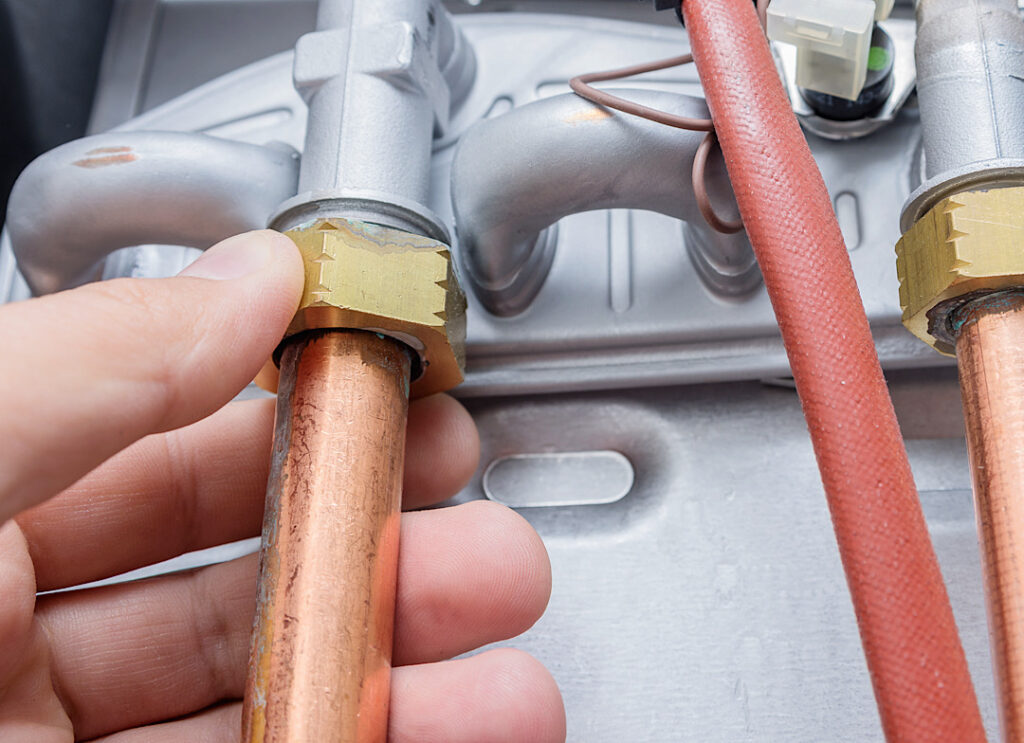The Right Time to Service Your Water Heater

Best Practices for Water Heater Maintenance
Regular Inspections
Frequency: At least once a year.
Purpose: To check for leaks, corrosion, and other signs of wear and tear.
Benefit: Early detection of potential issues can prevent costly repairs and extend the lifespan of your water heater.
Flush the Tank
Frequency: Annually for conventional tank water heaters.
Purpose: To remove sediment buildup at the bottom of the tank, which can reduce efficiency and lead to overheating.
Benefit: Flushing the tank improves efficiency and performance, leading to energy savings and prolonging the unit’s lifespan.
Test the Pressure Relief Valve
Frequency: Annually.
Purpose: To ensure the valve is working correctly and to release any pressure buildup within the tank.
Benefit: Prevents potential pressure-related damages to the water heater and ensures safe operation.
Inspect the Anode Rod
Frequency: Every 2 to 3 years.
Purpose: To check for corrosion. The anode rod protects the tank from rusting by corroding in place of the tank.
Benefit: Replacing a corroded anode rod can significantly extend the life of your water heater.
Adjust Temperature Settings
Frequency: As needed, based on seasonal changes or preference.
Purpose: To maintain optimal temperature settings for efficiency and safety.
Benefit: Proper temperature settings can reduce energy consumption and prevent scalding accidents.
When to Consider Water Heater Service
Signs Your Water Heater Needs Attention:
Inconsistent Water Temperature: If you’re experiencing fluctuating water temperatures or your water isn’t getting as hot as it used to, it might be time for a service check.
Discolored Water: Rusty or murky water can indicate corrosion inside the tank or issues with the pipes.
Strange Noises: Rumbling, popping, or whining noises from the water heater suggest sediment buildup or a malfunctioning element.
Leaks: Any signs of water leakage around the water heater should prompt immediate attention to prevent water damage and potential mold growth.
Age of the Unit: If your water heater is over 10 years old, it may be nearing the end of its useful life. Consider having it inspected by a professional to determine if it’s time for a replacement.
Efficiency Tips for Your Water Heater
Insulate the Water Heater Tank: Adding an insulation blanket can reduce standby heat losses and save on energy costs, especially if you have an older unit.
Lower the Thermostat: Setting the thermostat to 120°F (instead of the often default 140°F) can reduce heating costs while providing comfortable hot water for most uses.
Use Cold Water for Laundry: Switching to cold water for laundry can significantly reduce the demand on your water heater.
Install Low-Flow Fixtures: Low-flow showerheads and faucets reduce hot water usage without sacrificing performance, further saving on energy costs.
Regular maintenance and timely servicing of your water heater are crucial for ensuring efficient operation, extending its lifespan, and saving on energy costs. By adhering to the best practices outlined above and staying vigilant for signs of necessary repairs, you can enjoy the consistent and reliable performance of your water heater for years to come.





Serving Front Range Denver from Arvada to Monument
Arvada
Aurora
Boulder
Brighton
Broomfield
Castle Pines
Castle Rock
Centennial
Cherry Hills Village
Commerce City
Denver
Edgewater
Elizabeth
Englewood
Evergreen
Foxfield
Franktown
Glendale
Golden
Greenwood Village
Highlands Ranch
Ken Caryl
Lafayette
Lakewood
Larkspur
Littleton
Lone Tree
Longmont
Louisville
Morrison
Northglenn
Parker
Roxborough Park
Sedalia
Sheridan
Thornton
Westminster
Wheat Ridge




